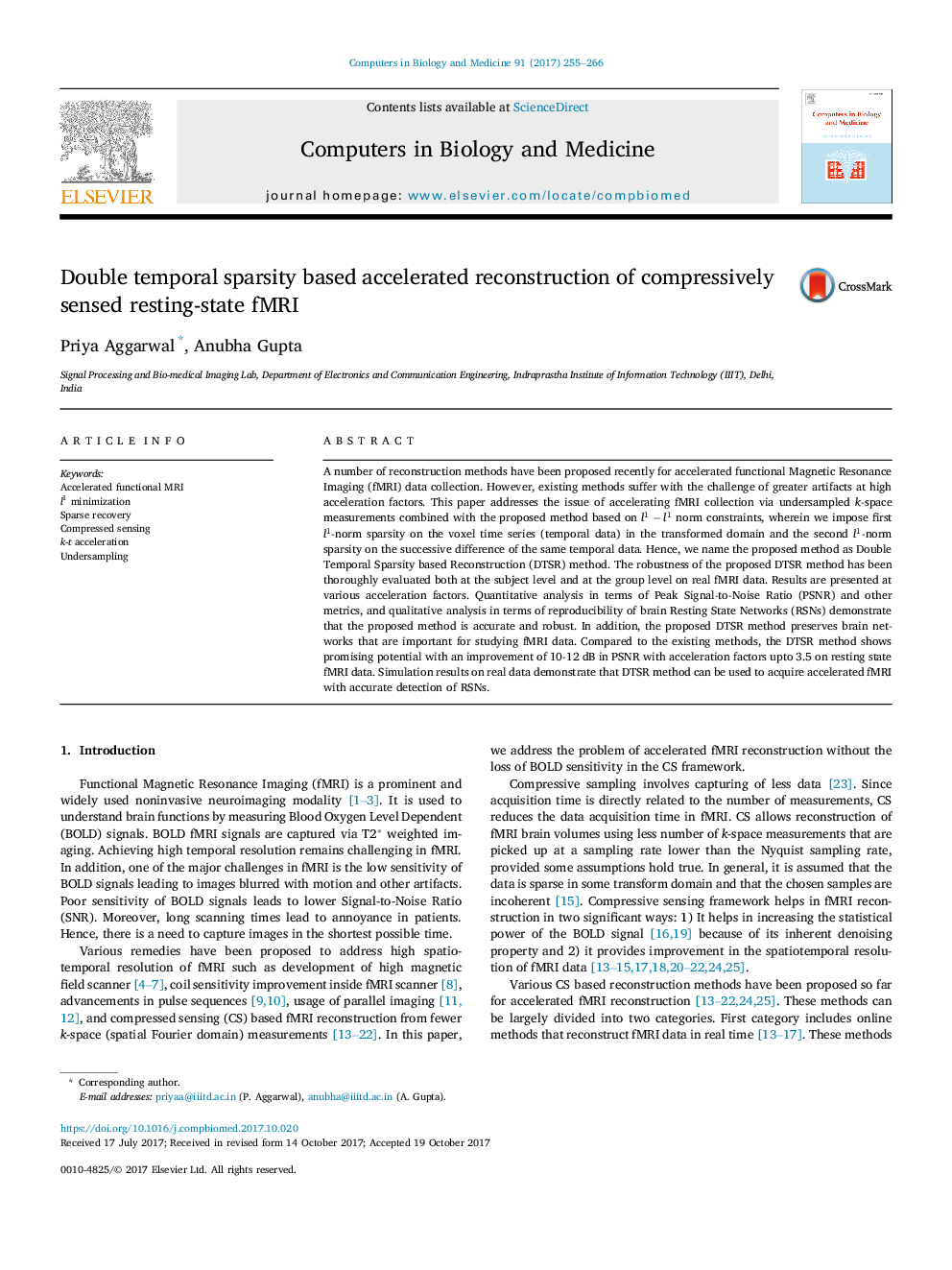| Article ID | Journal | Published Year | Pages | File Type |
|---|---|---|---|---|
| 6920735 | Computers in Biology and Medicine | 2017 | 12 Pages |
Abstract
A number of reconstruction methods have been proposed recently for accelerated functional Magnetic Resonance Imaging (fMRI) data collection. However, existing methods suffer with the challenge of greater artifacts at high acceleration factors. This paper addresses the issue of accelerating fMRI collection via undersampled k-space measurements combined with the proposed method based on l1âl1 norm constraints, wherein we impose first l1-norm sparsity on the voxel time series (temporal data) in the transformed domain and the second l1-norm sparsity on the successive difference of the same temporal data. Hence, we name the proposed method as Double Temporal Sparsity based Reconstruction (DTSR) method. The robustness of the proposed DTSR method has been thoroughly evaluated both at the subject level and at the group level on real fMRI data. Results are presented at various acceleration factors. Quantitative analysis in terms of Peak Signal-to-Noise Ratio (PSNR) and other metrics, and qualitative analysis in terms of reproducibility of brain Resting State Networks (RSNs) demonstrate that the proposed method is accurate and robust. In addition, the proposed DTSR method preserves brain networks that are important for studying fMRI data. Compared to the existing methods, the DTSR method shows promising potential with an improvement of 10-12Â dB in PSNR with acceleration factors upto 3.5 on resting state fMRI data. Simulation results on real data demonstrate that DTSR method can be used to acquire accelerated fMRI with accurate detection of RSNs.
Related Topics
Physical Sciences and Engineering
Computer Science
Computer Science Applications
Authors
Priya Aggarwal, Anubha Gupta,
